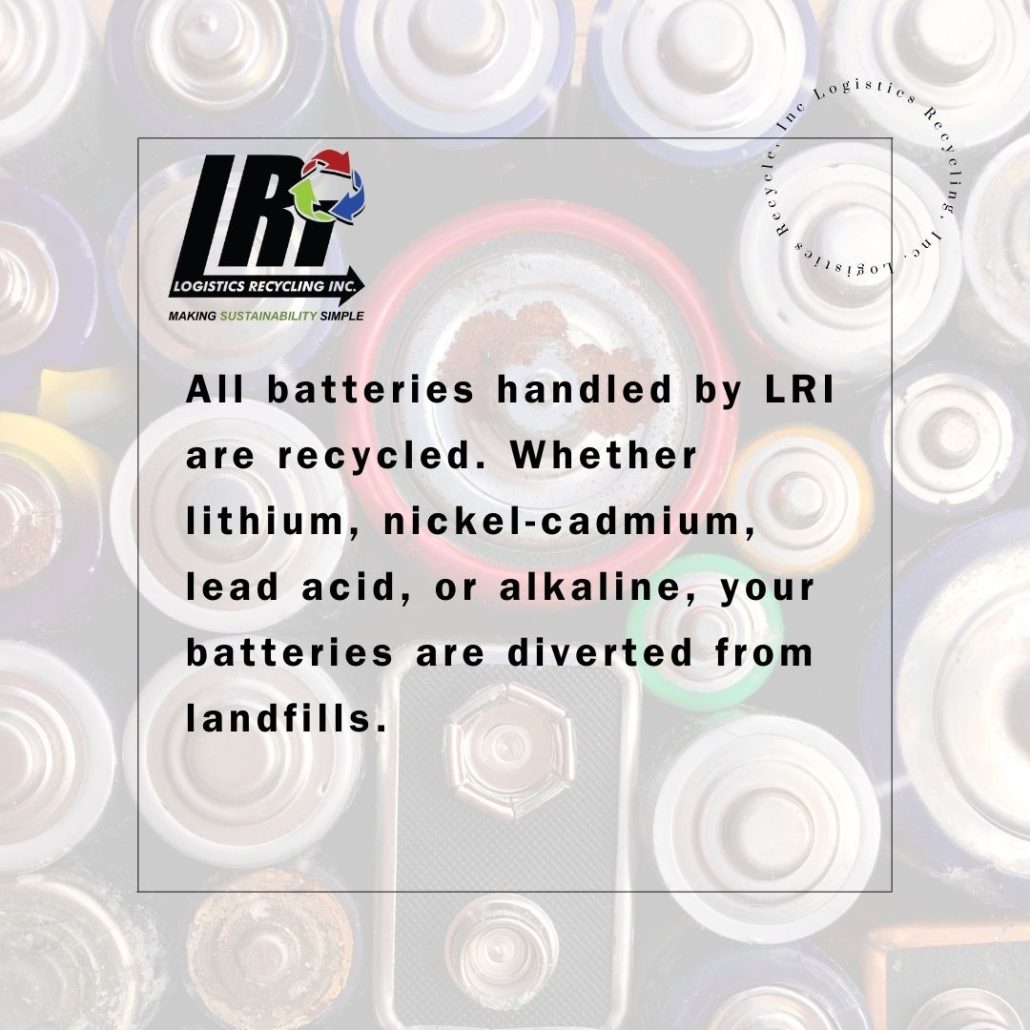
Recycling lithium batteries is a responsible practice that supports environmental sustainability, conserves resources, reduces energy consumption, and enhances safety.
What are Lithium Batteries?
Lithium batteries are rechargeable batteries that use lithium ions as the primary component of their electrochemistry. They are an efficient power source widely used across many industries and households. As such, you will find them in everyday consumer products, such as smartphones, tablets, laptops, smartwatches, power tools, portable chargers, and vape pens.
Why Recycle Lithium Batteries?
Lithium batteries contain valuable resources like cobalt, graphite, and lithium. These critical minerals can be difficult to substitute, so vital resources are lost when thrown in the trash. Recycling recovers and reuses valuable metals from lithium batteries, conserving natural resources by reducing the need to mine new materials. Additionally, recycling uses less energy than extracting and processing new raw materials. As a result, this helps reduce greenhouse gas emissions and conserve energy resources.
How Does Recycling Lithium Batteries Enhance Safety?
Lithium batteries can be dangerous if not disposed of properly. Because they contain hazardous materials, they can cause fires or explosions. If these batteries end up in the trash, their harmful contents can leak into the soil and water, causing environmental damage. Recycling prevents these toxic substances from polluting our environment and also helps reduce the amount of waste in our landfills.
 Additional Resources:
Additional Resources:
Universal Waste Collection & Recycling by Logistics Recycling, Inc.:
https://www.recyclewithlri.com/universal-waste
https://www.meriinc.com/what-we-do/universal-waste/
Frequent Questions on Lithium-Ion Batteries: https://www.epa.gov/recycle/frequent-questions-lithium-ion-batteries




